
ai-woocommerce
Migrate WooCommerce data into Aimeos database
Stars: 191
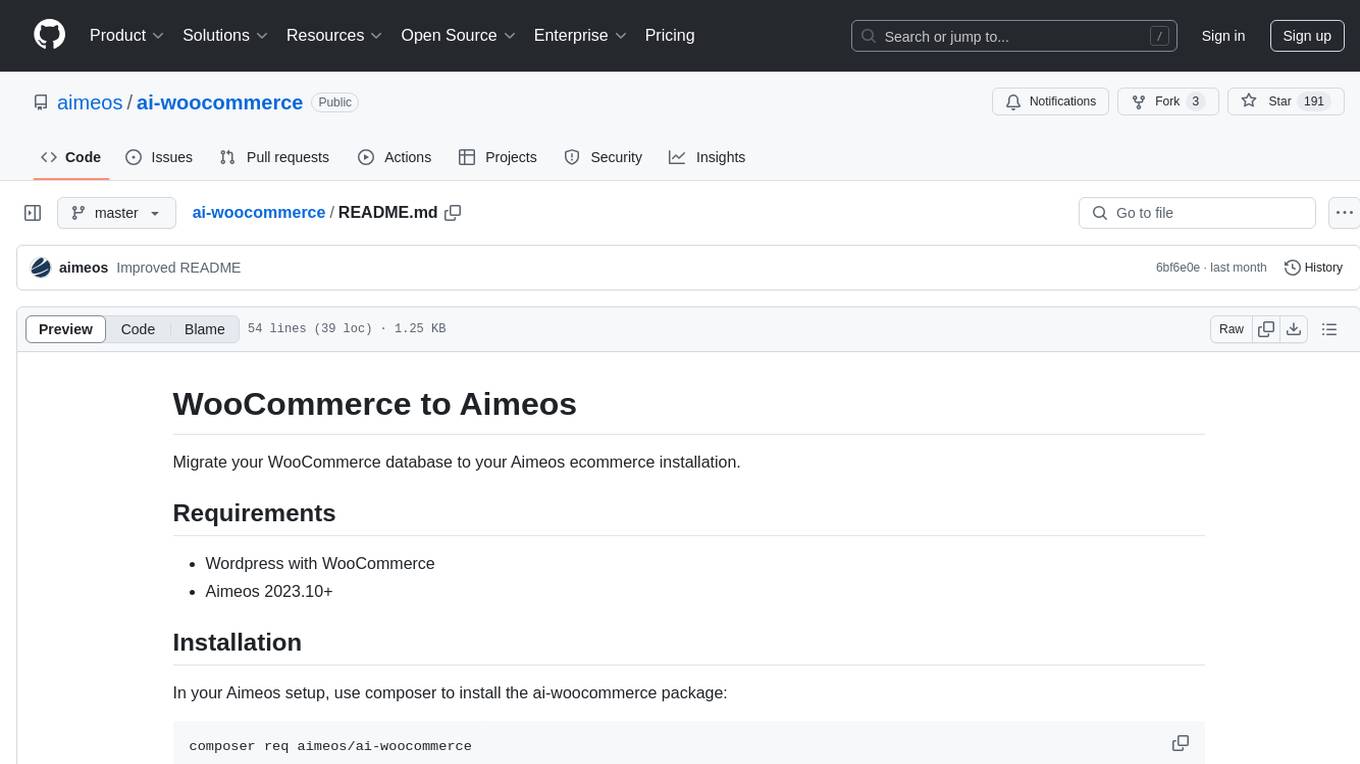
The ai-woocommerce tool facilitates the migration of data from a WooCommerce database to an Aimeos ecommerce installation. It requires Wordpress with WooCommerce and Aimeos 2023.10+. Users can install the ai-woocommerce package using composer and configure the migration process by setting up the database connections. The tool migrates products, categories, suppliers/brands, attributes, and extra product options from WooCommerce to Aimeos, streamlining the transition process for e-commerce websites.
README:
Migrate your WooCommerce database to your Aimeos ecommerce installation.
- Wordpress with WooCommerce
- Aimeos 2023.10+
In your Aimeos setup, use composer to install the ai-woocommerce package:
composer req aimeos/ai-woocommerce
Configure your Wordpress database in your Laravel ./config/shop.php:
'resource' => [
'db' => [
// existing DB connection settings
],
'db-woocommerce' => [
'adapter' => 'mysql',
'host' => '127.0.0.1',
'port' => '3306',
'database' => 'wordpress',
'username' => 'wp_db_user',
'password' => 'wp_password',
],
],Caution: Make sure the Aimeos installation contains no demo data and db-woocommerce is at the end of the resource list!
Afterwards, run this command to execute all setup tasks including those from the ai-woocommerce package:
php artisan aimeos:setup
This will migrate these entities from your WooCommerce database to the Aimeos database:
- Products
- Categories
- Suppliers/Brands
- Attributes and attribute types
- Extra product options from a WooCommerce extension (partly)
If everything works correctly, remove the db-woocommerce database settings from your ./config/shop.php again.
For Tasks:
Click tags to check more tools for each tasksFor Jobs:
Alternative AI tools for ai-woocommerce
Similar Open Source Tools

ai-woocommerce
The ai-woocommerce tool facilitates the migration of data from a WooCommerce database to an Aimeos ecommerce installation. It requires Wordpress with WooCommerce and Aimeos 2023.10+. Users can install the ai-woocommerce package using composer and configure the migration process by setting up the database connections. The tool migrates products, categories, suppliers/brands, attributes, and extra product options from WooCommerce to Aimeos, streamlining the transition process for e-commerce websites.
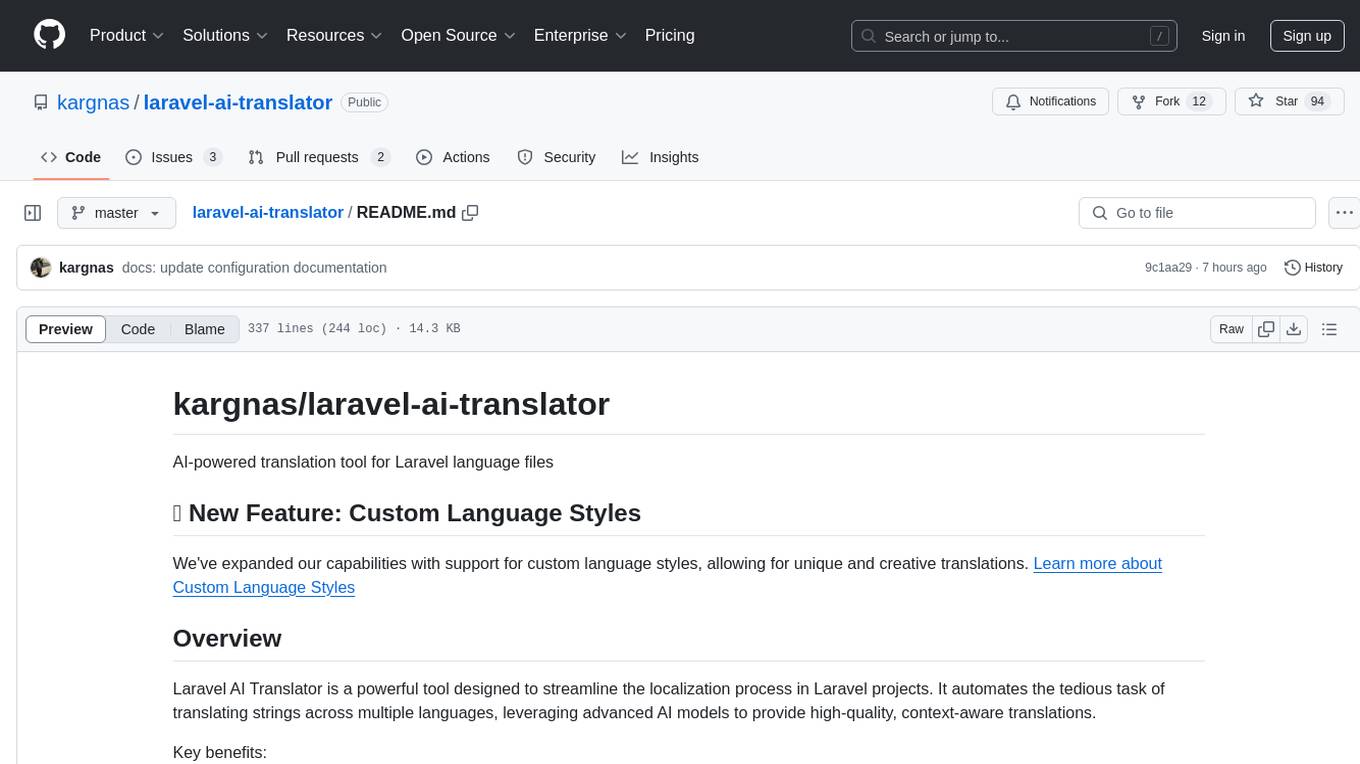
laravel-ai-translator
Laravel AI Translator is a powerful tool designed to streamline the localization process in Laravel projects. It automates the task of translating strings across multiple languages using advanced AI models like GPT-4 and Claude. The tool supports custom language styles, preserves variables and nested structures, and ensures consistent tone and style across translations. It integrates seamlessly with Laravel projects, making internationalization easier and more efficient. Users can customize translation rules, handle large language files efficiently, and validate translations for accuracy. The tool offers contextual understanding, linguistic precision, variable handling, smart length adaptation, and tone consistency for intelligent translations.
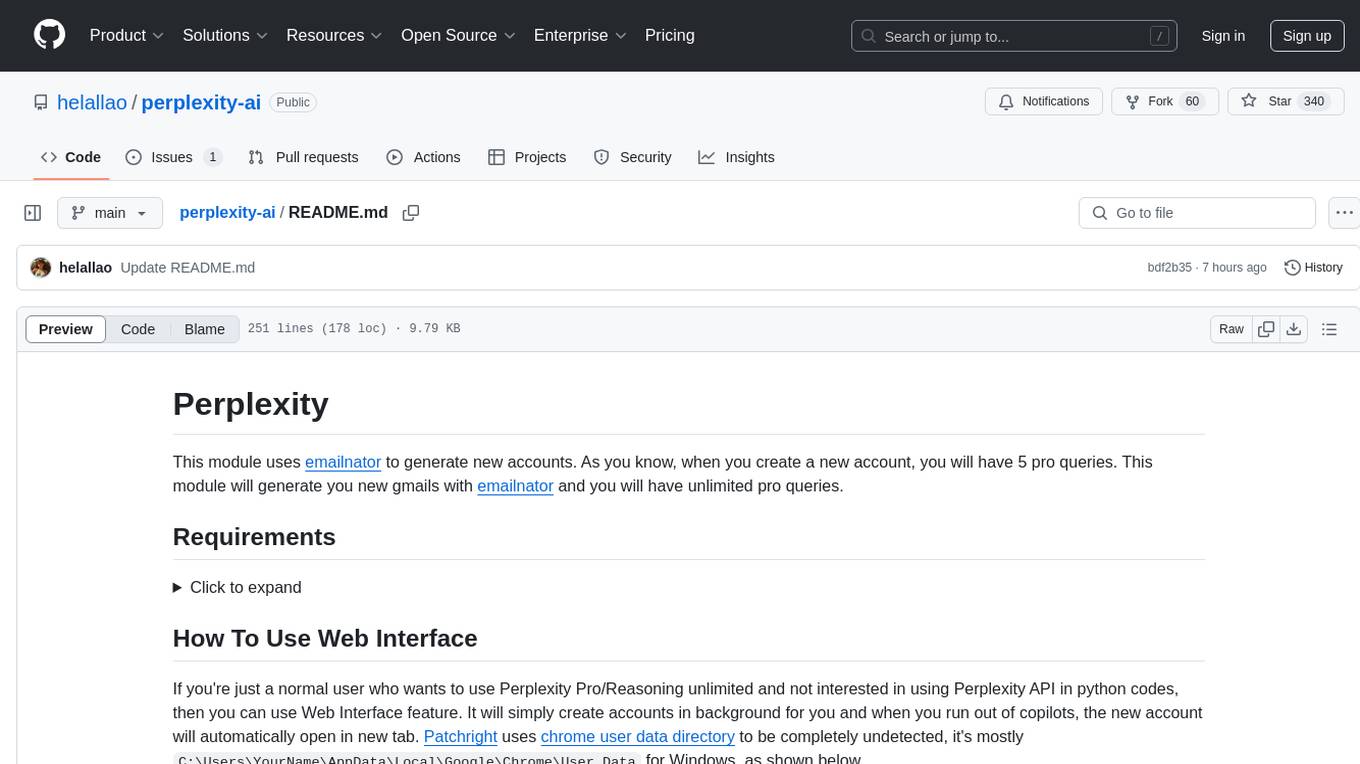
perplexity-ai
Perplexity is a module that utilizes emailnator to generate new accounts, providing users with 5 pro queries per account creation. It enables the creation of new Gmail accounts with emailnator, ensuring unlimited pro queries. The tool requires specific Python libraries for installation and offers both a web interface and an API for different usage scenarios. Users can interact with the tool to perform various tasks such as account creation, query searches, and utilizing different modes for research purposes. Perplexity also supports asynchronous operations and provides guidance on obtaining cookies for account usage and account generation from emailnator.
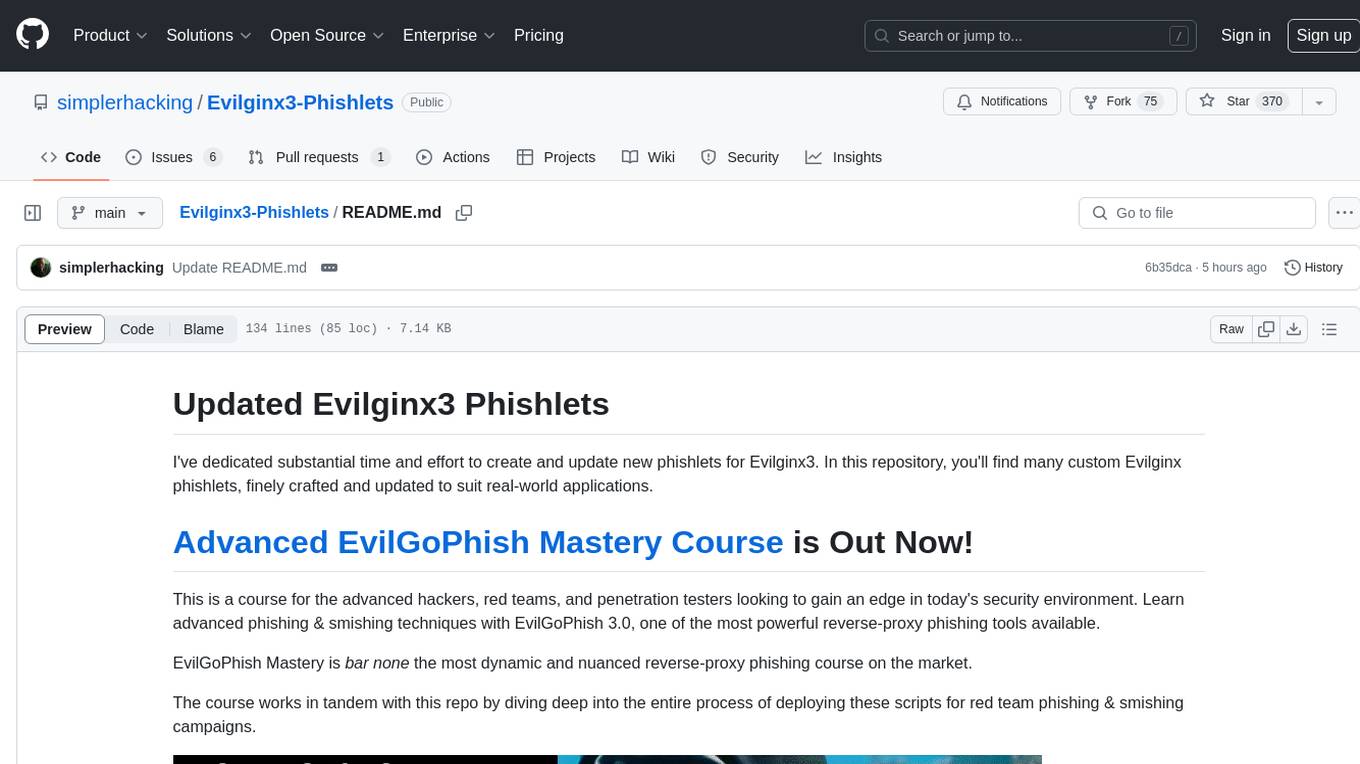
Evilginx3-Phishlets
This repository contains custom Evilginx phishlets that are meticulously crafted and updated for real-world applications. It also offers an advanced course, EvilGoPhish Mastery, focusing on phishing and smishing techniques using EvilGoPhish 3.0. The course complements the repository by providing in-depth guidance on deploying these scripts for red team phishing and smishing campaigns.
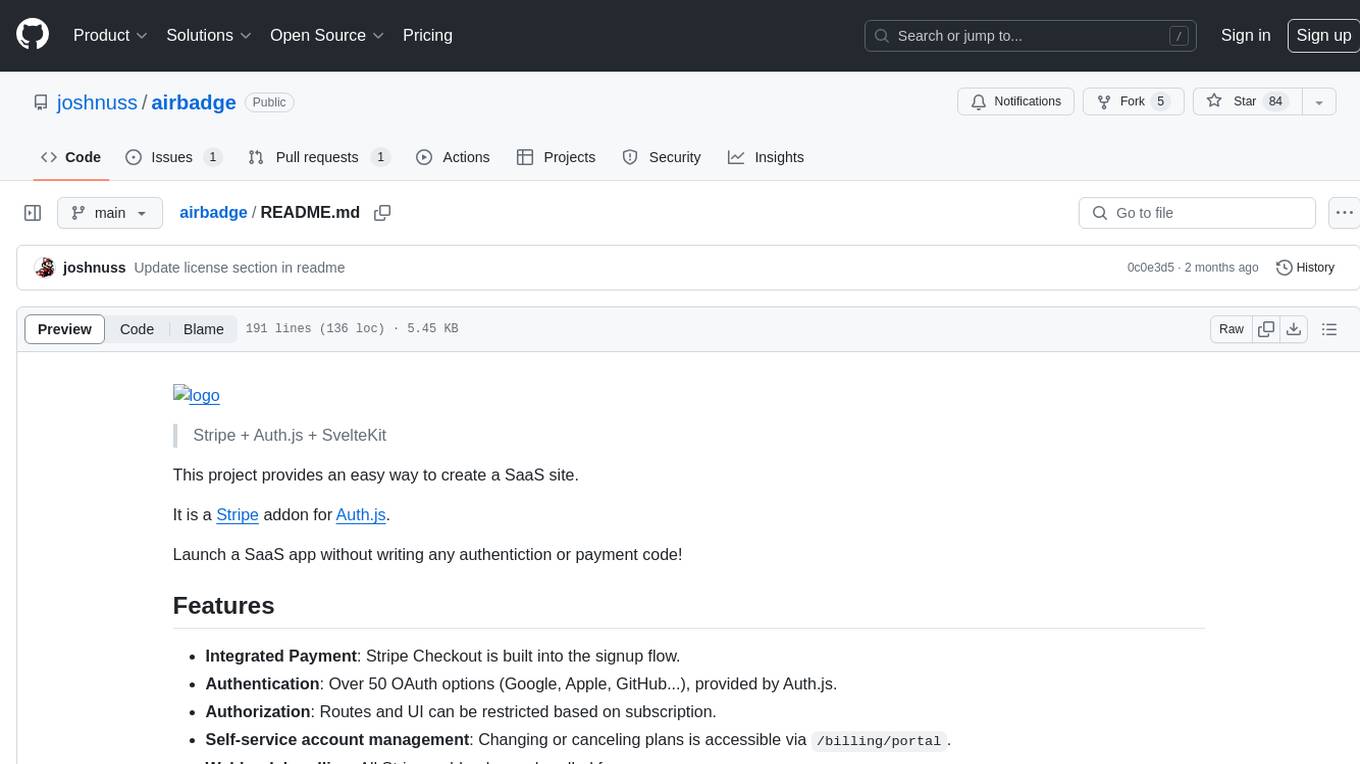
airbadge
Airbadge is a Stripe addon for Auth.js that provides an easy way to create a SaaS site without writing any authentication or payment code. It integrates Stripe Checkout into the signup flow, offers over 50 OAuth options for authentication, allows route and UI restriction based on subscription, enables self-service account management, handles all Stripe webhooks, supports trials and free plans, includes subscription and plan data in the session, and is open source with a BSL license. The project also provides components for conditional UI display based on subscription status and helper functions to restrict route access. Additionally, it offers a billing endpoint with various routes for billing operations. Setup involves installing @airbadge/sveltekit, setting up a database provider for Auth.js, adding environment variables, configuring authentication and billing options, and forwarding Stripe events to localhost.
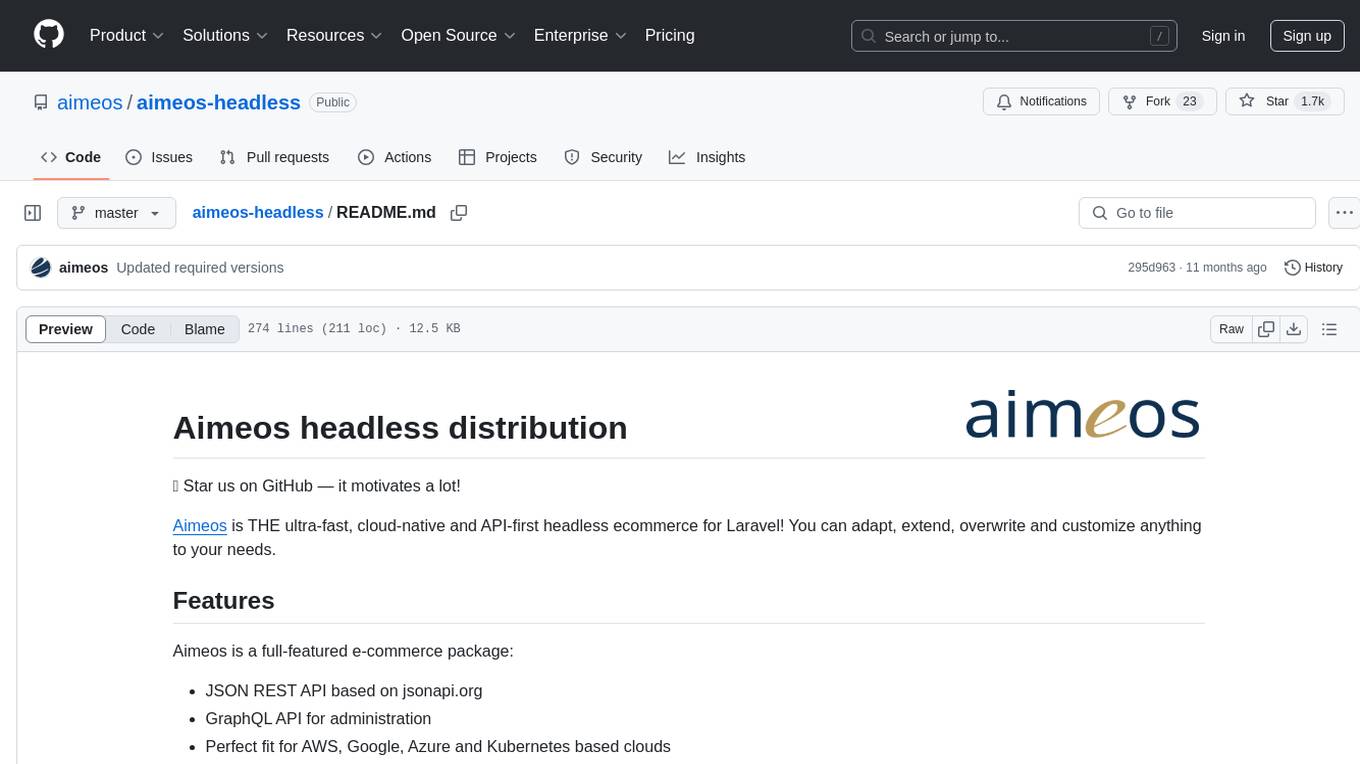
aimeos-headless
Aimeos headless distribution is an ultra-fast, cloud-native, and API-first headless ecommerce solution for Laravel. It offers a full-featured e-commerce package with features like JSON REST API, GraphQL API, multi-vendor support, subscriptions, block/tier pricing, admin backend, and more. The distribution is highly customizable, extensible, and suitable for multi-tenant e-commerce SaaS solutions. It supports multiple languages, AI-based text translation, and provides secure and high-quality source code. Aimeos is designed for AWS, Google, Azure, and Kubernetes based clouds, and can handle a wide range of products efficiently.
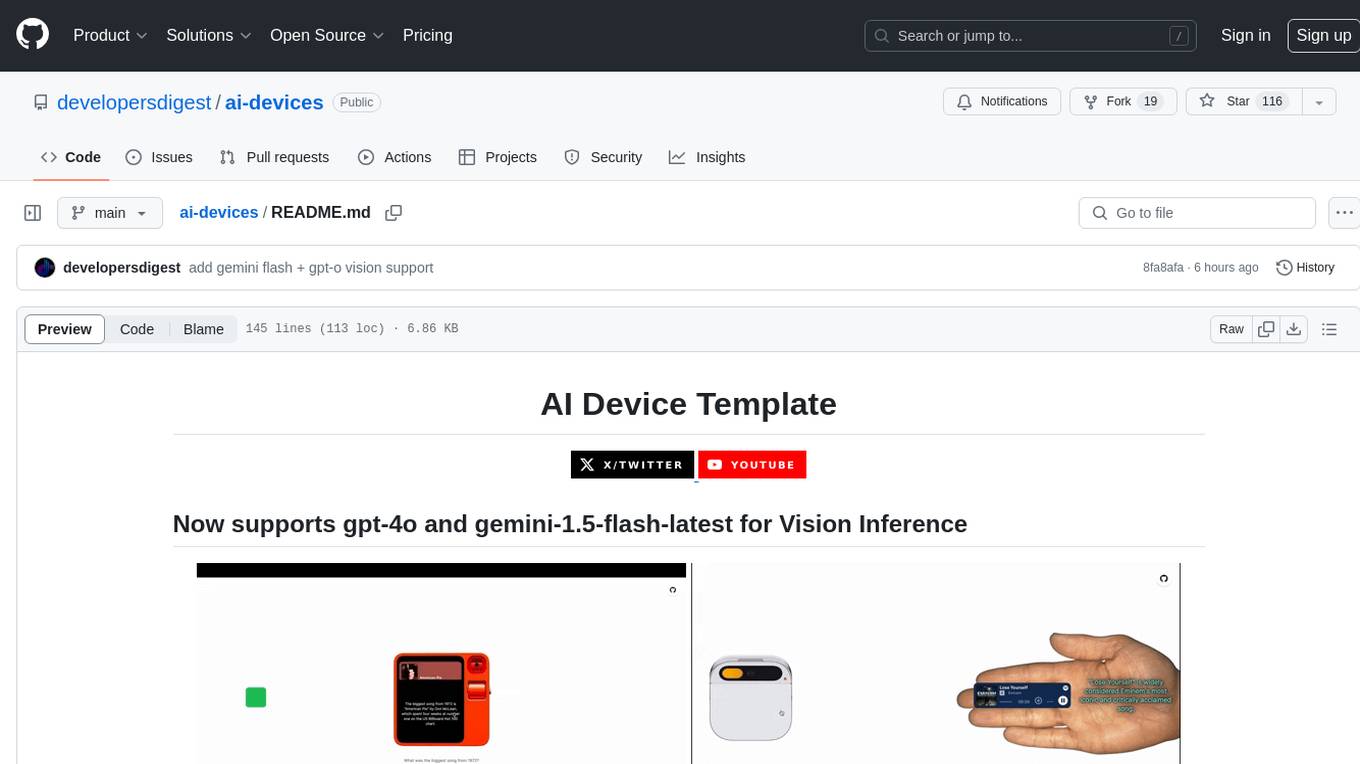
ai-devices
AI Devices Template is a project that serves as an AI-powered voice assistant utilizing various AI models and services to provide intelligent responses to user queries. It supports voice input, transcription, text-to-speech, image processing, and function calling with conditionally rendered UI components. The project includes customizable UI settings, optional rate limiting using Upstash, and optional tracing with Langchain's LangSmith for function execution. Users can clone the repository, install dependencies, add API keys, start the development server, and deploy the application. Configuration settings can be modified in `app/config.tsx` to adjust settings and configurations for the AI-powered voice assistant.
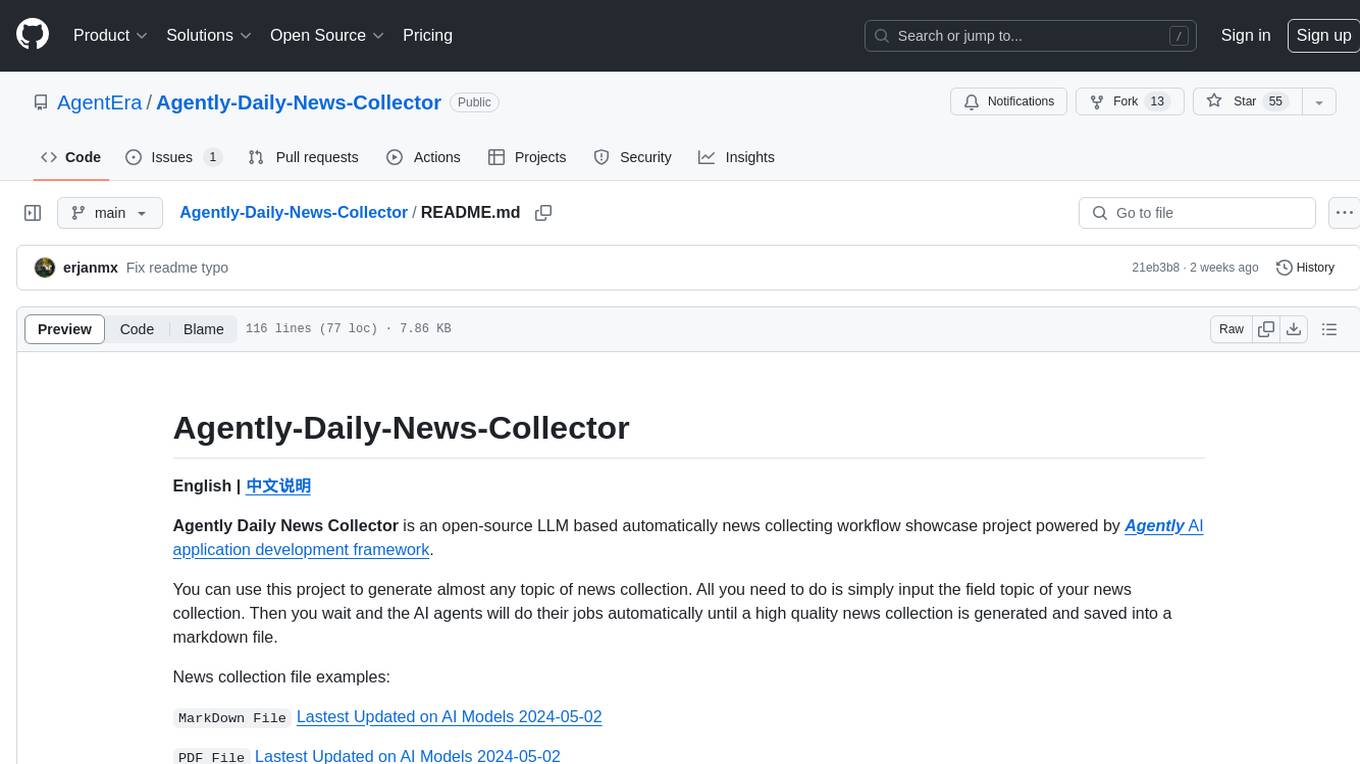
Agently-Daily-News-Collector
Agently Daily News Collector is an open-source project showcasing a workflow powered by the Agent ly AI application development framework. It allows users to generate news collections on various topics by inputting the field topic. The AI agents automatically perform the necessary tasks to generate a high-quality news collection saved in a markdown file. Users can edit settings in the YAML file, install Python and required packages, input their topic idea, and wait for the news collection to be generated. The process involves tasks like outlining, searching, summarizing, and preparing column data. The project dependencies include Agently AI Development Framework, duckduckgo-search, BeautifulSoup4, and PyYAM.
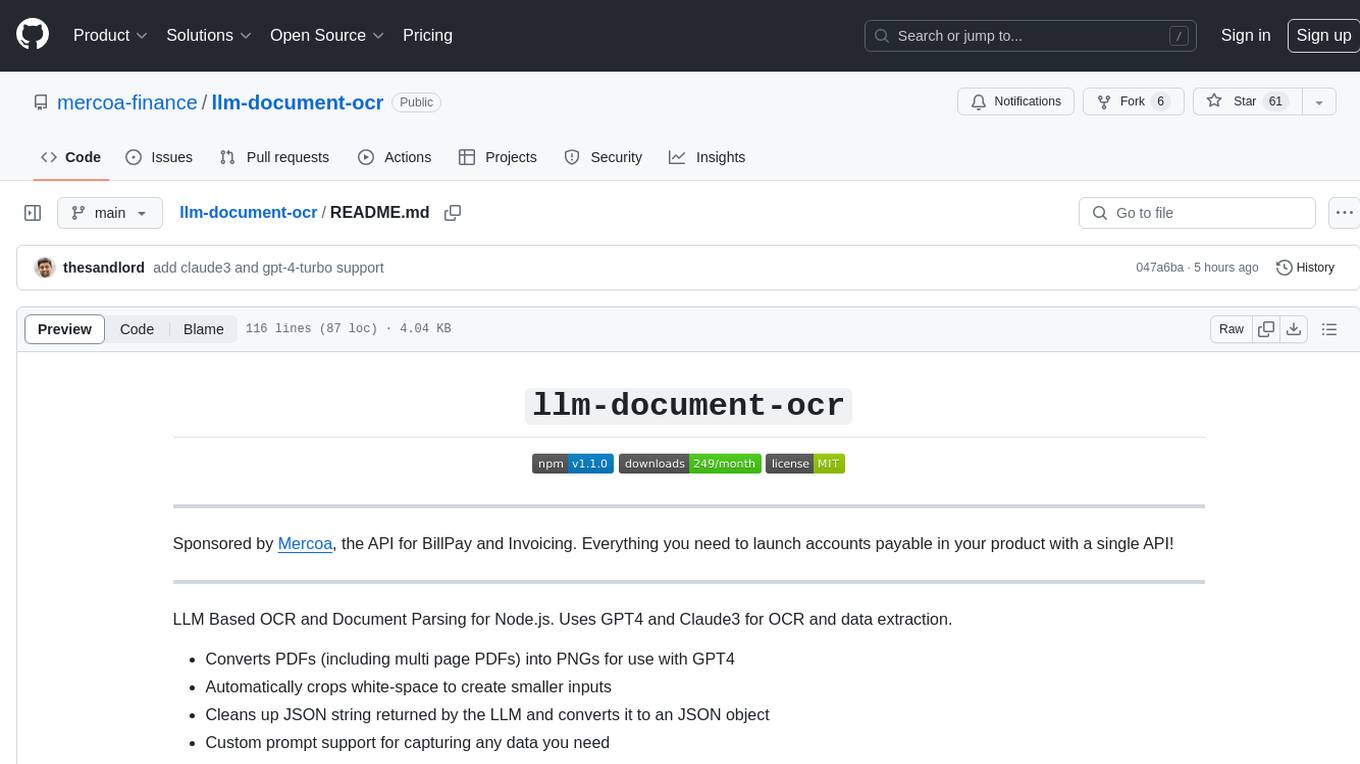
llm-document-ocr
LLM Document OCR is a Node.js tool that utilizes GPT4 and Claude3 for OCR and data extraction. It converts PDFs into PNGs, crops white-space, cleans up JSON strings, and supports various image formats. Users can customize prompts for data extraction. The tool is sponsored by Mercoa, offering API for BillPay and Invoicing.
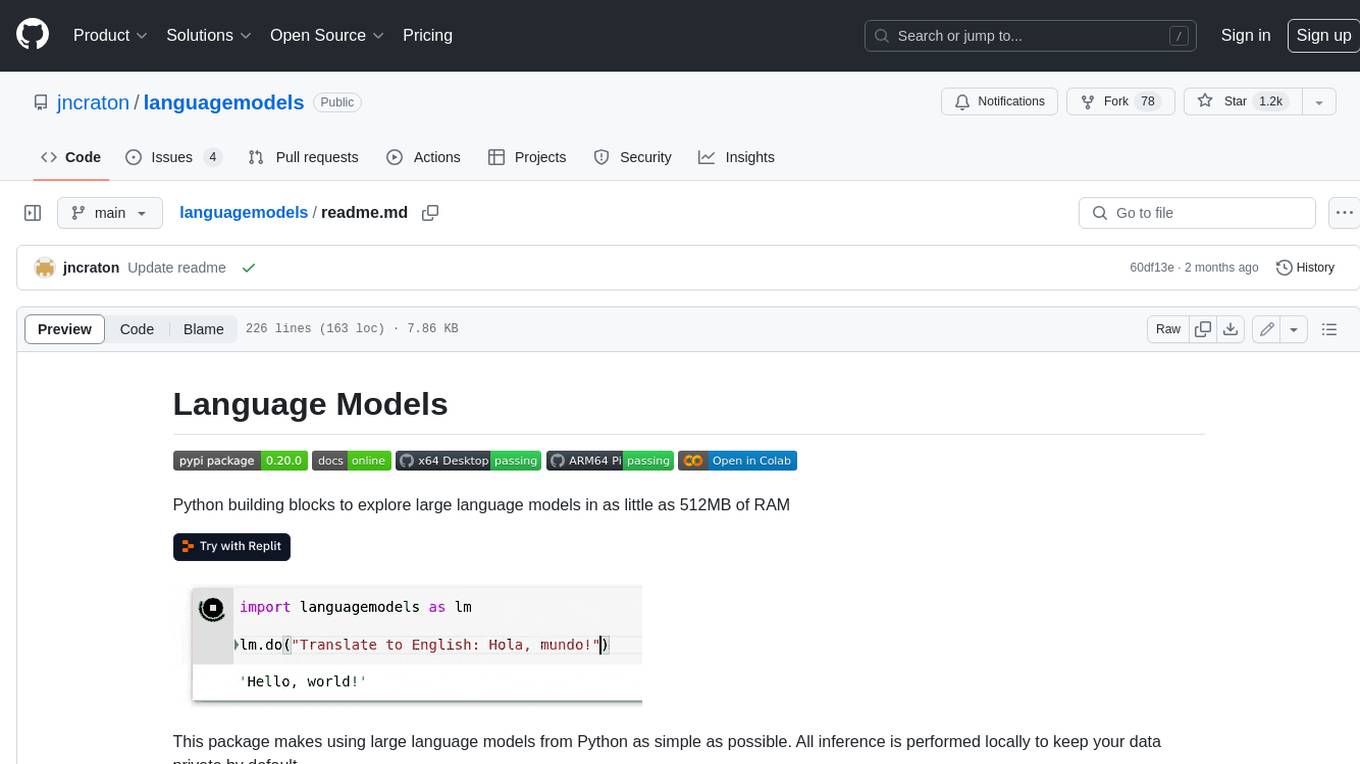
languagemodels
Language Models is a Python package that provides building blocks to explore large language models with as little as 512MB of RAM. It simplifies the usage of large language models from Python, ensuring all inference is performed locally to keep data private. The package includes features such as text completions, chat capabilities, code completions, external text retrieval, semantic search, and more. It outperforms Hugging Face transformers for CPU inference and offers sensible default models with varying parameters based on memory constraints. The package is suitable for learners and educators exploring the intersection of large language models with modern software development.

pandas-ai
PandasAI is a Python library that makes it easy to ask questions to your data in natural language. It helps you to explore, clean, and analyze your data using generative AI.
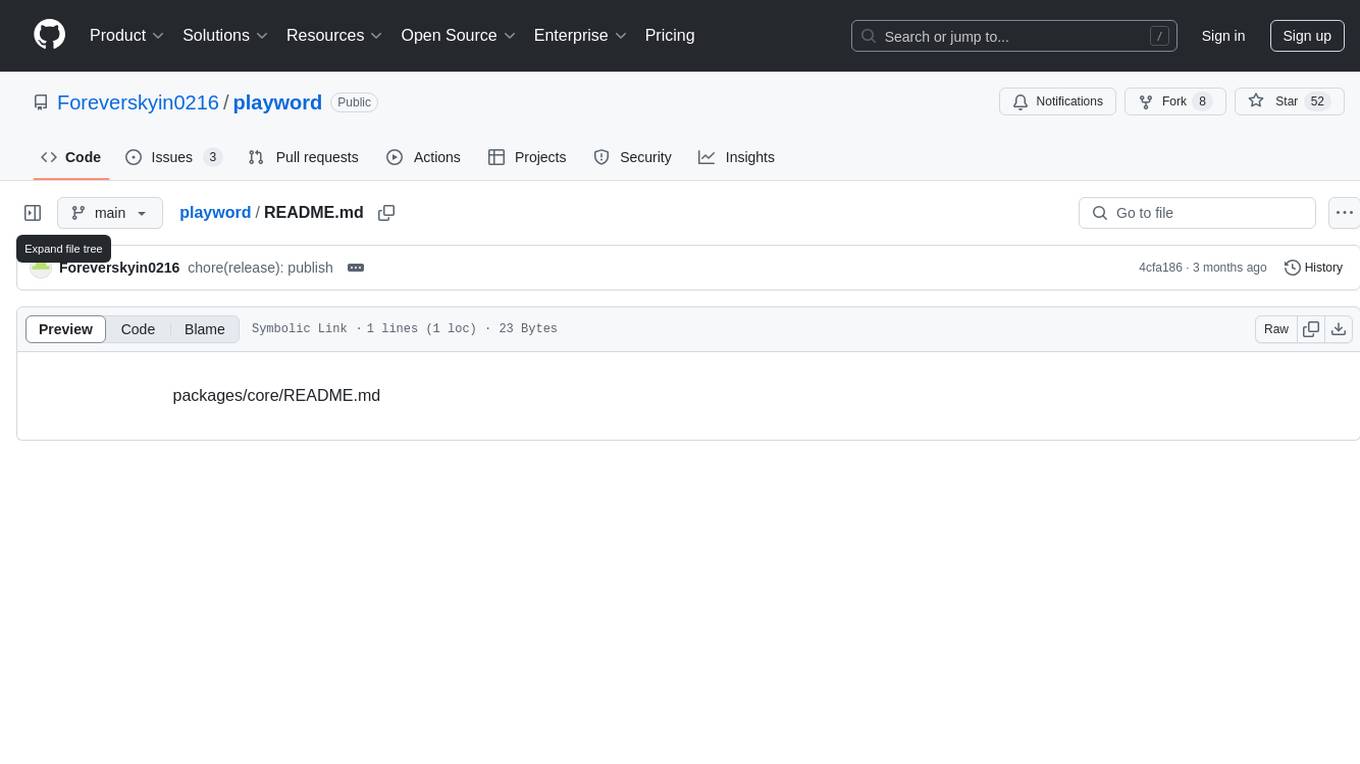
playword
PlayWord is a tool designed to supercharge web test automation experience with AI. It provides core features such as enabling browser operations and validations using natural language inputs, as well as monitoring interface to record and dry-run test steps. PlayWord supports multiple AI services including Anthropic, Google, and OpenAI, allowing users to select the appropriate provider based on their requirements. The tool also offers features like assertion handling, frame handling, custom variables, test recordings, and an Observer module to track user interactions on web pages. With PlayWord, users can interact with web pages using natural language commands, reducing the need to worry about element locators and providing AI-powered adaptation to UI changes.
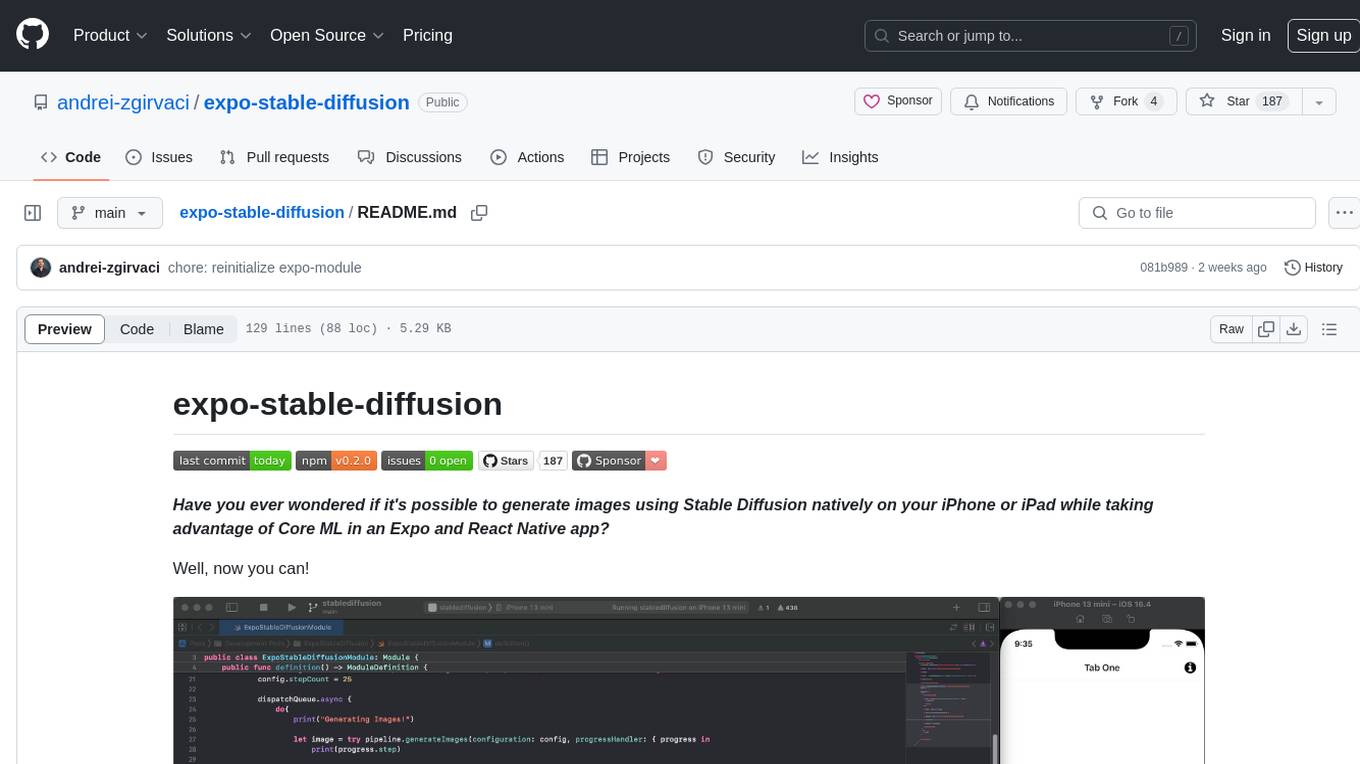
expo-stable-diffusion
The `expo-stable-diffusion` repository provides a tool for generating images using Stable Diffusion natively on iOS devices within Expo and React Native apps. Users can install and configure the module to create images based on prompts. The repository includes information on updating iOS deployment targets, enabling increased memory limits, and building iOS apps. Additionally, users can obtain Stable Diffusion models from various sources. The repository also addresses troubleshooting tips related to model load times and image generation durations. The developer seeks sponsorship to further enhance the project, including adding Android support.
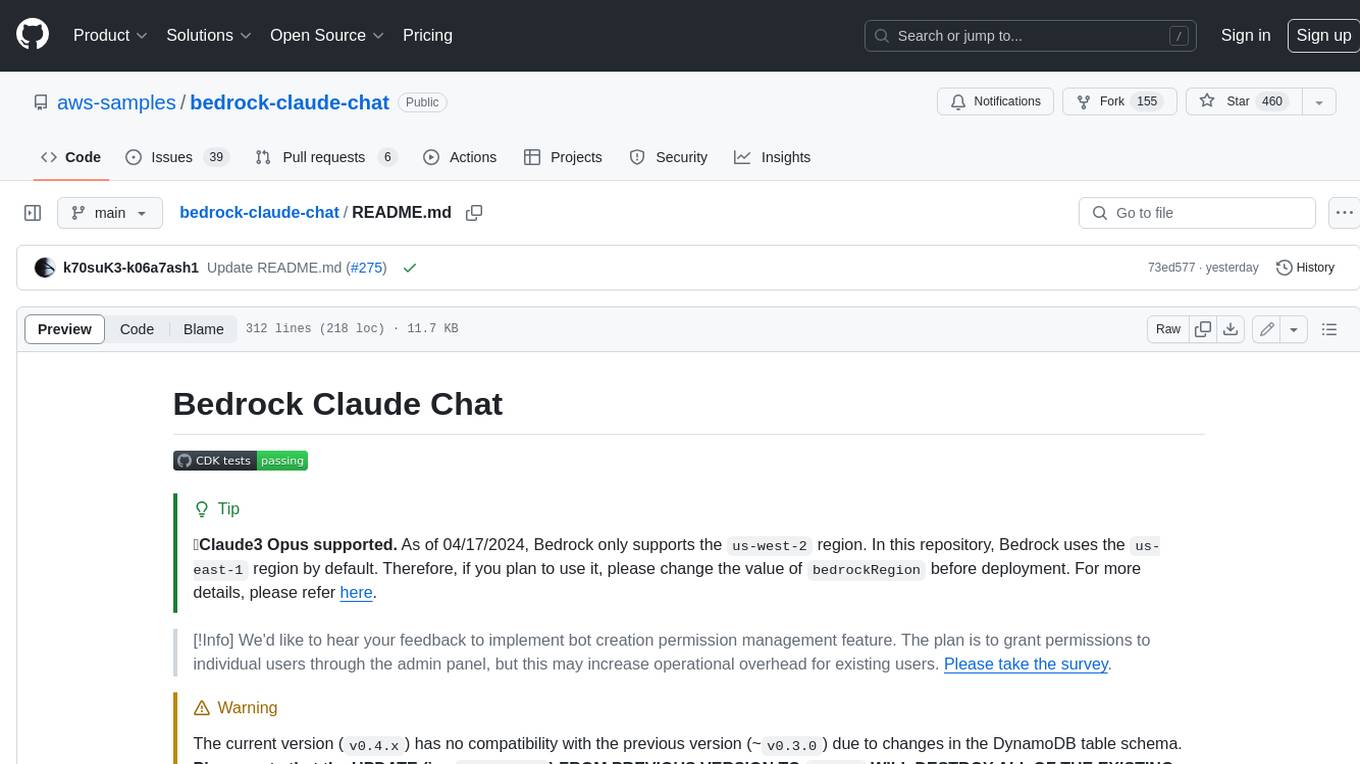
bedrock-claude-chat
This repository is a sample chatbot using the Anthropic company's LLM Claude, one of the foundational models provided by Amazon Bedrock for generative AI. It allows users to have basic conversations with the chatbot, personalize it with their own instructions and external knowledge, and analyze usage for each user/bot on the administrator dashboard. The chatbot supports various languages, including English, Japanese, Korean, Chinese, French, German, and Spanish. Deployment is straightforward and can be done via the command line or by using AWS CDK. The architecture is built on AWS managed services, eliminating the need for infrastructure management and ensuring scalability, reliability, and security.
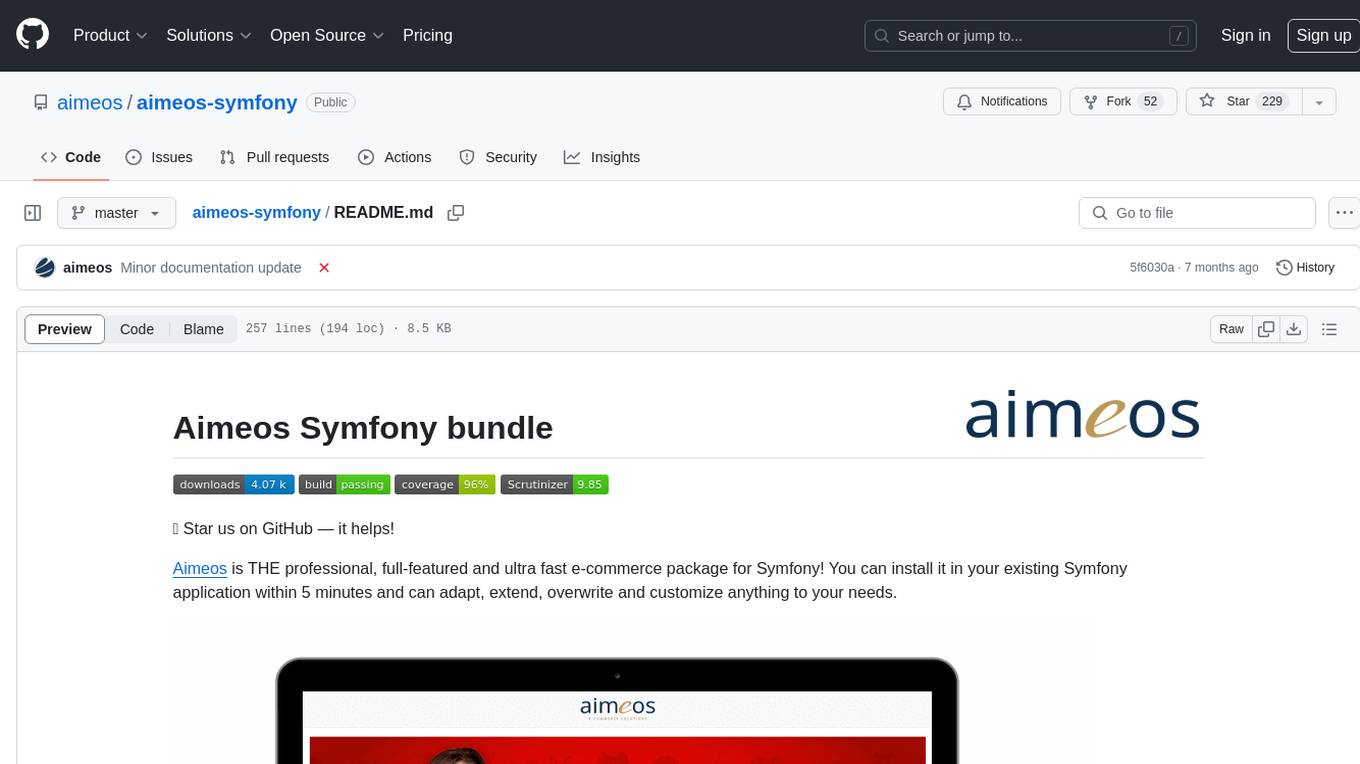
aimeos-symfony
Aimeos Symfony bundle is a professional, full-featured, and ultra-fast e-commerce package for Symfony. It can be easily installed and customized within an existing Symfony application. The bundle provides comprehensive features for setting up an e-commerce platform, including authentication, routing configuration, database setup, and administration interface setup. It offers flexibility for adapting, extending, overwriting, and customizing various aspects to meet specific business needs. The bundle is designed to streamline the development process and provide a robust foundation for building e-commerce applications with Symfony.
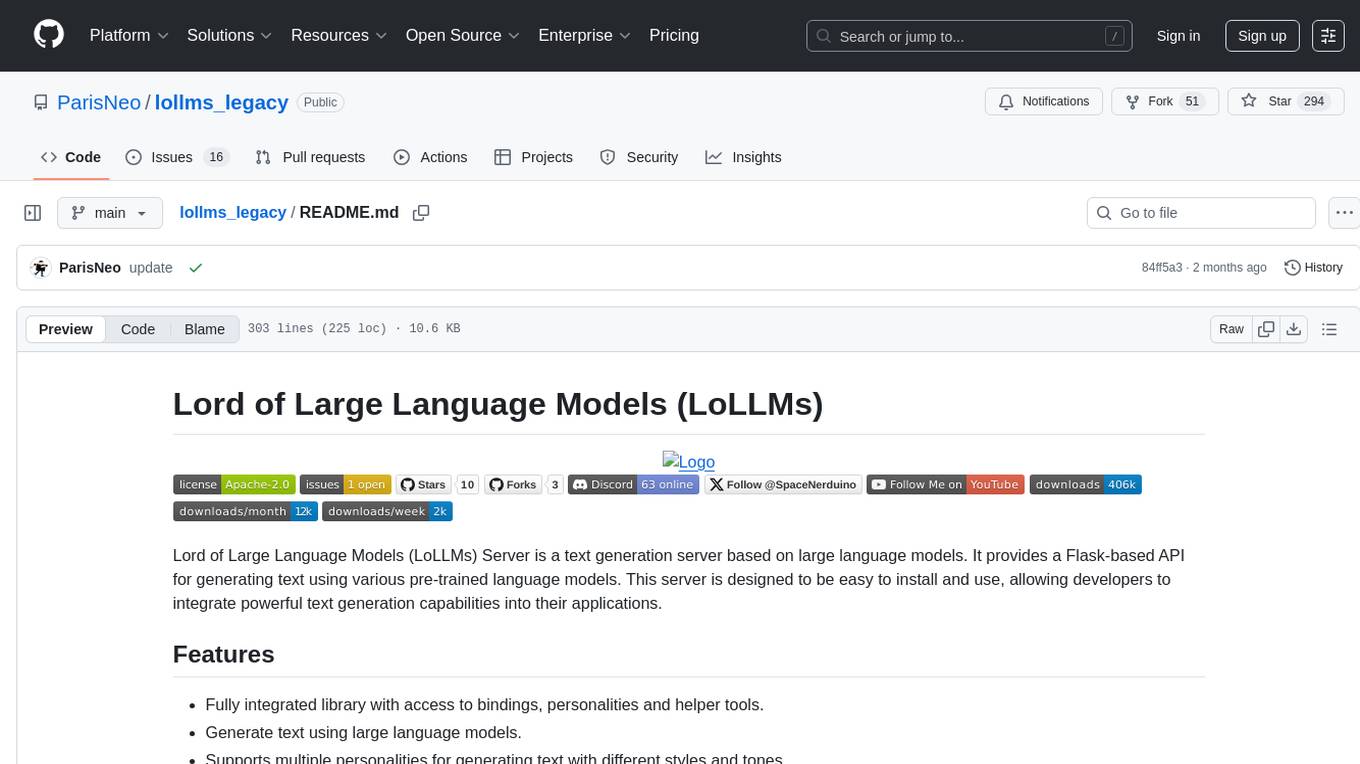
lollms_legacy
Lord of Large Language Models (LoLLMs) Server is a text generation server based on large language models. It provides a Flask-based API for generating text using various pre-trained language models. This server is designed to be easy to install and use, allowing developers to integrate powerful text generation capabilities into their applications. The tool supports multiple personalities for generating text with different styles and tones, real-time text generation with WebSocket-based communication, RESTful API for listing personalities and adding new personalities, easy integration with various applications and frameworks, sending files to personalities, running on multiple nodes to provide a generation service to many outputs at once, and keeping data local even in the remote version.
For similar tasks
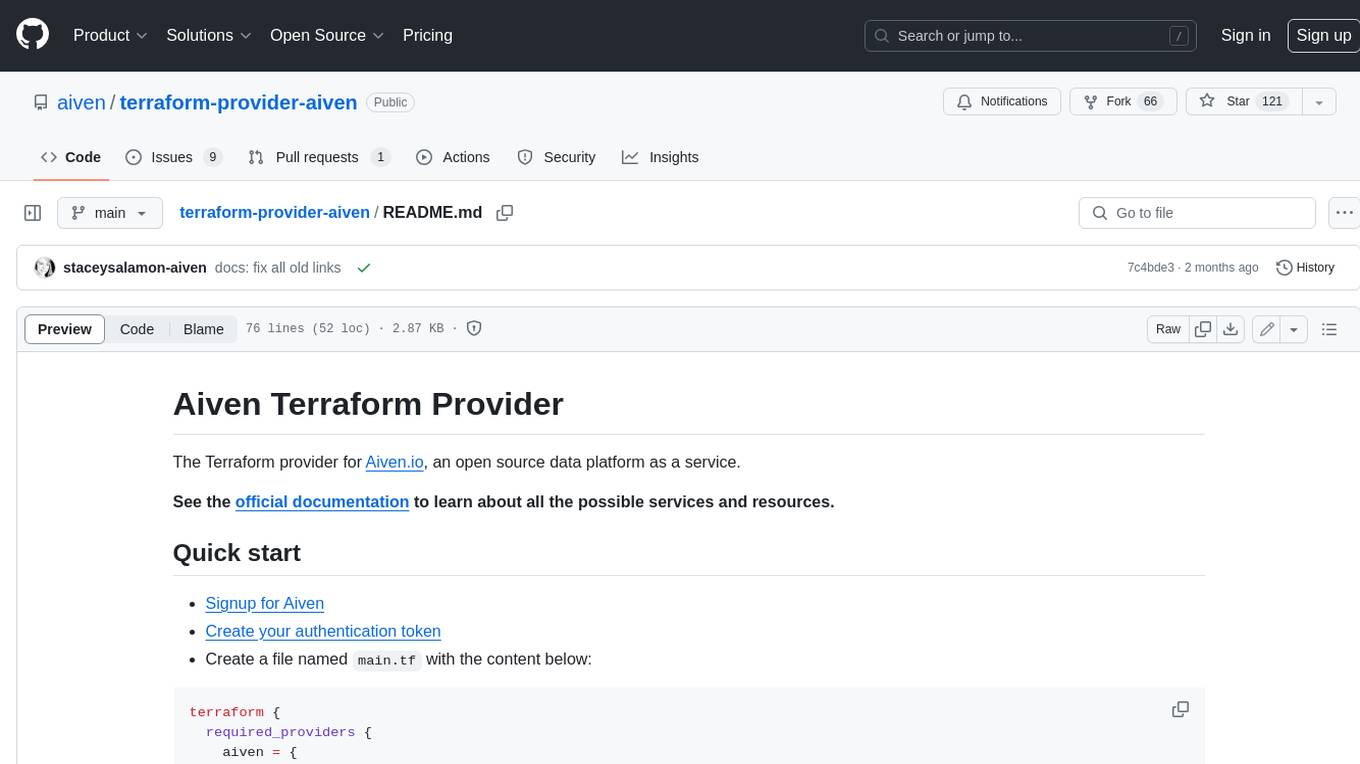
terraform-provider-aiven
The Terraform provider for Aiven.io, an open source data platform as a service. See the official documentation to learn about all the possible services and resources.
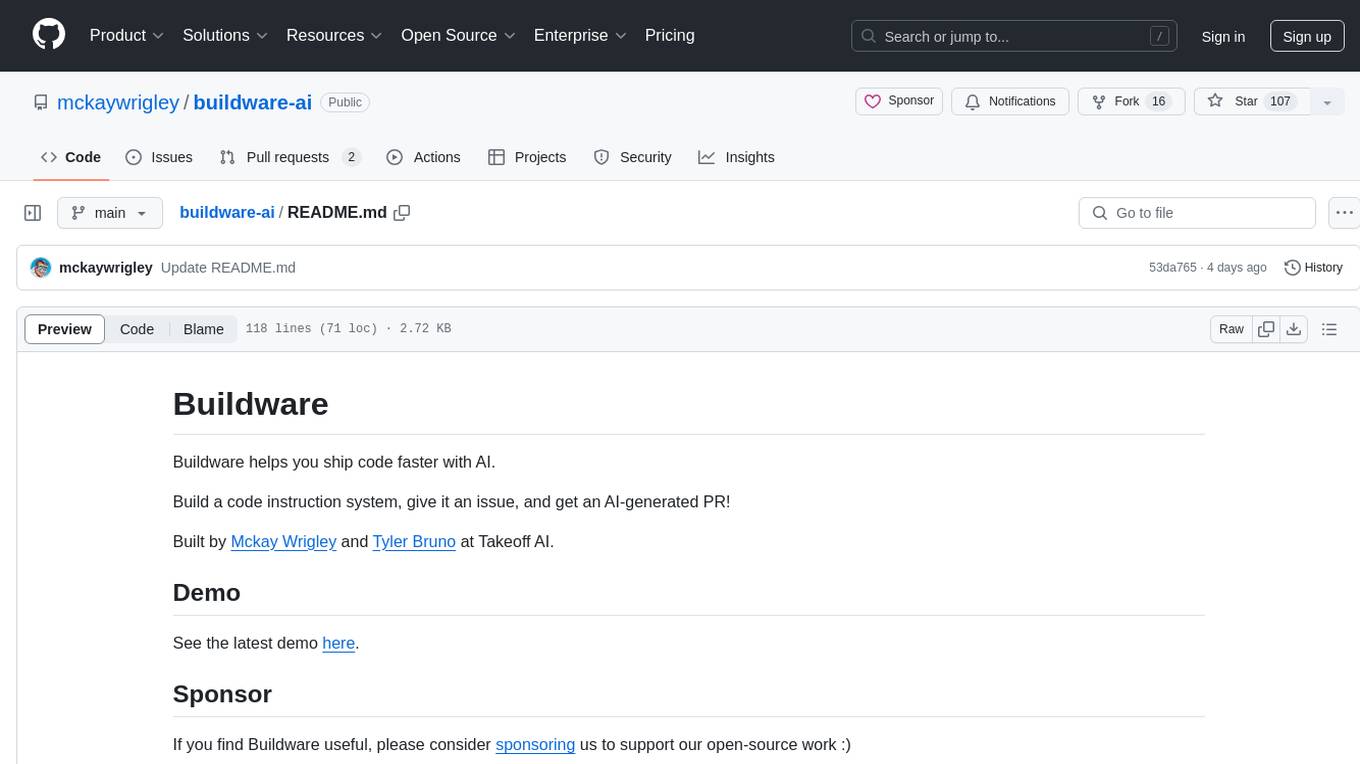
buildware-ai
Buildware is a tool designed to help developers accelerate their code shipping process by leveraging AI technology. Users can build a code instruction system, submit an issue, and receive an AI-generated pull request. The tool is created by Mckay Wrigley and Tyler Bruno at Takeoff AI. Buildware offers a simple setup process involving cloning the repository, installing dependencies, setting up environment variables, configuring a database, and obtaining a GitHub Personal Access Token (PAT). The tool is currently being updated to include advanced features such as Linear integration, local codebase mode, and team support.
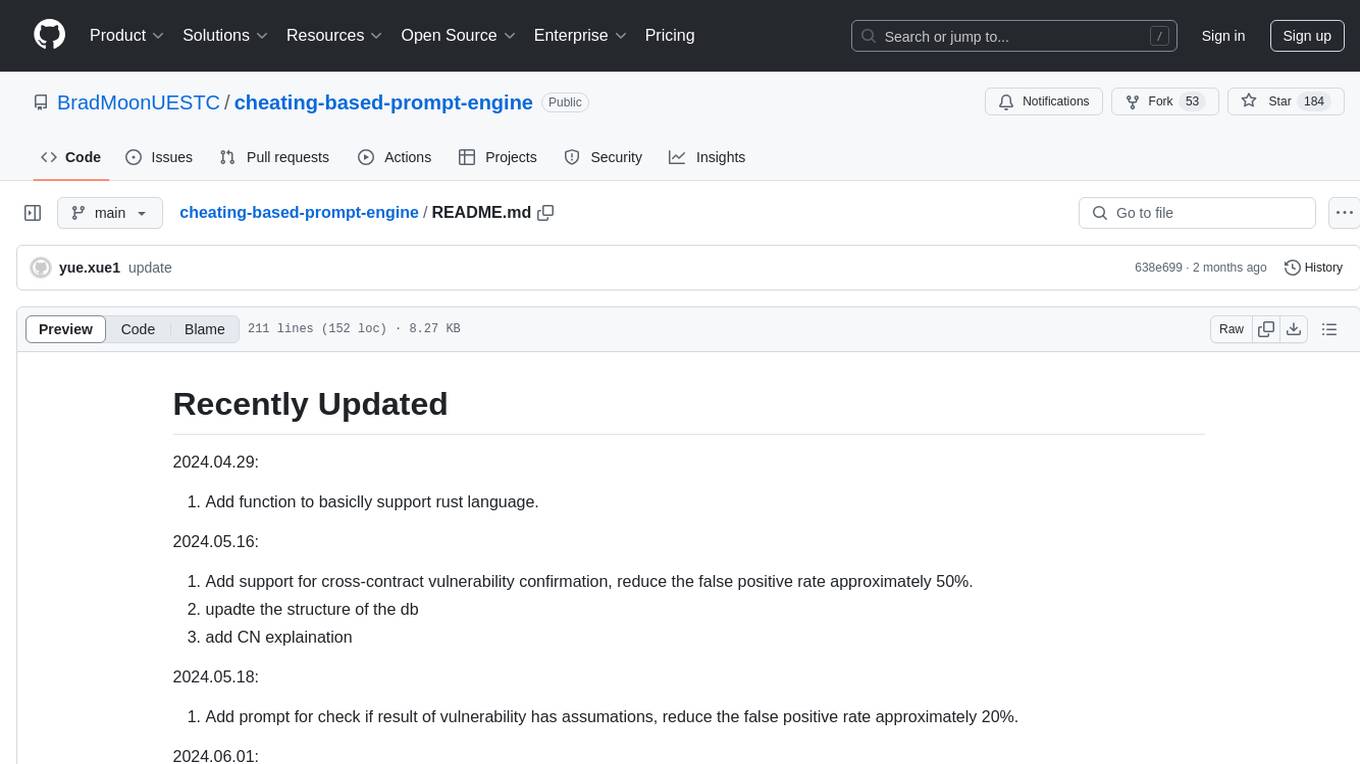
cheating-based-prompt-engine
This is a vulnerability mining engine purely based on GPT, requiring no prior knowledge base, no fine-tuning, yet its effectiveness can overwhelmingly surpass most of the current related research. The core idea revolves around being task-driven, not question-driven, driven by prompts, not by code, and focused on prompt design, not model design. The essence is encapsulated in one word: deception. It is a type of code understanding logic vulnerability mining that fully stimulates the capabilities of GPT, suitable for real actual projects.

ai-woocommerce
The ai-woocommerce tool facilitates the migration of data from a WooCommerce database to an Aimeos ecommerce installation. It requires Wordpress with WooCommerce and Aimeos 2023.10+. Users can install the ai-woocommerce package using composer and configure the migration process by setting up the database connections. The tool migrates products, categories, suppliers/brands, attributes, and extra product options from WooCommerce to Aimeos, streamlining the transition process for e-commerce websites.
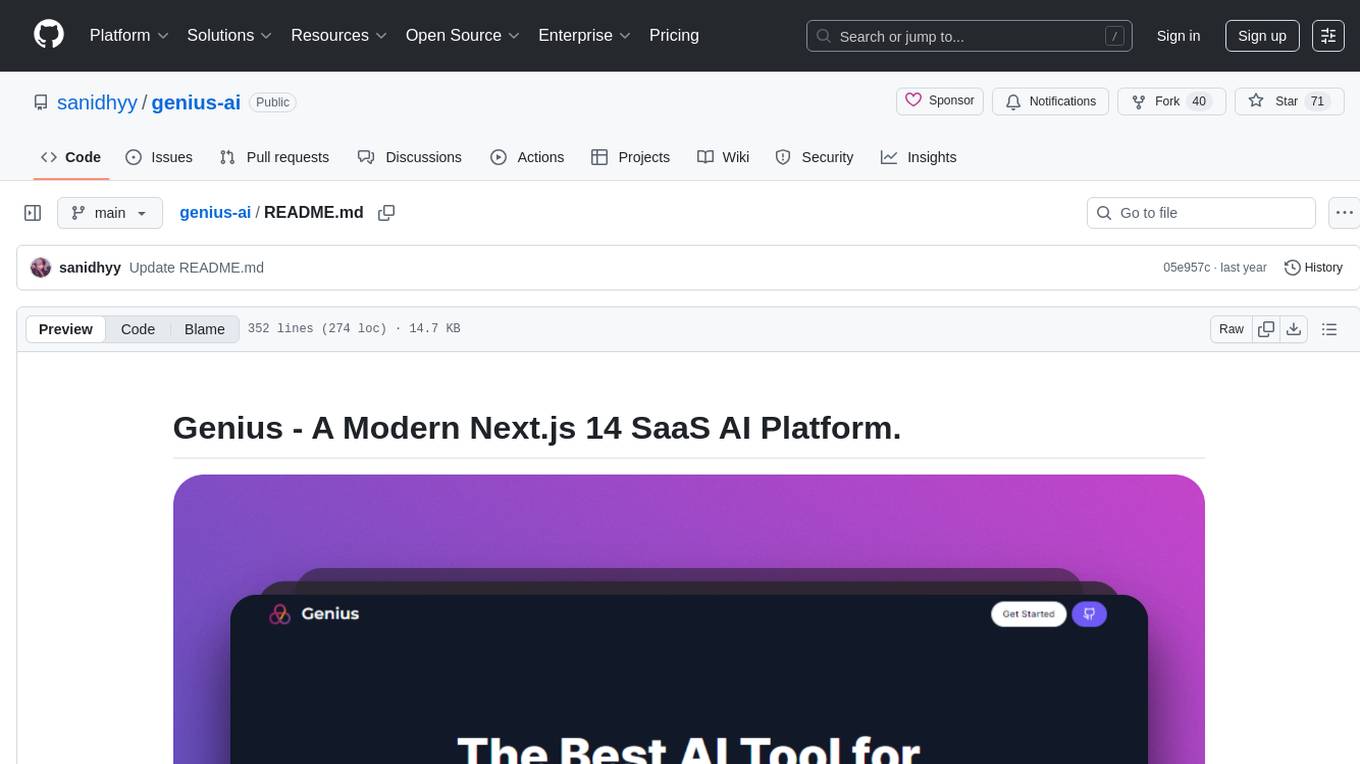
genius-ai
Genius is a modern Next.js 14 SaaS AI platform that provides a comprehensive folder structure for app development. It offers features like authentication, dashboard management, landing pages, API integration, and more. The platform is built using React JS, Next JS, TypeScript, Tailwind CSS, and integrates with services like Netlify, Prisma, MySQL, and Stripe. Genius enables users to create AI-powered applications with functionalities such as conversation generation, image processing, code generation, and more. It also includes features like Clerk authentication, OpenAI integration, Replicate API usage, Aiven database connectivity, and Stripe API/webhook setup. The platform is fully configurable and provides a seamless development experience for building AI-driven applications.
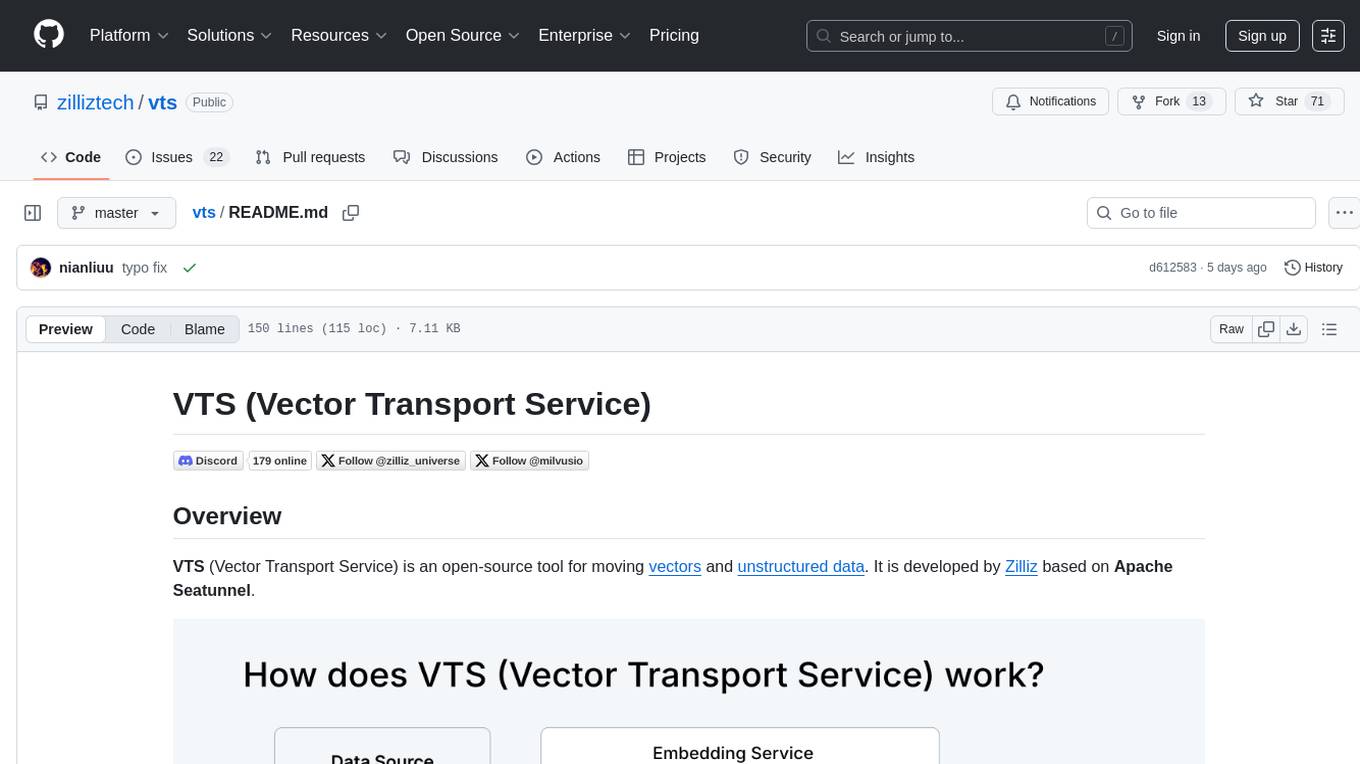
vts
VTS (Vector Transport Service) is an open-source tool developed by Zilliz based on Apache Seatunnel for moving vectors and unstructured data. It addresses data migration needs, supports real-time data streaming and offline import, simplifies unstructured data transformation, and ensures end-to-end data quality. Core capabilities include rich connectors, stream and batch processing, distributed snapshot support, high performance, and real-time monitoring. Future developments include incremental synchronization, advanced data transformation, and enhanced monitoring. VTS supports various connectors for data migration and offers advanced features like Transformers, cluster mode deployment, RESTful API, Docker deployment, and more.
For similar jobs

ai-woocommerce
The ai-woocommerce tool facilitates the migration of data from a WooCommerce database to an Aimeos ecommerce installation. It requires Wordpress with WooCommerce and Aimeos 2023.10+. Users can install the ai-woocommerce package using composer and configure the migration process by setting up the database connections. The tool migrates products, categories, suppliers/brands, attributes, and extra product options from WooCommerce to Aimeos, streamlining the transition process for e-commerce websites.
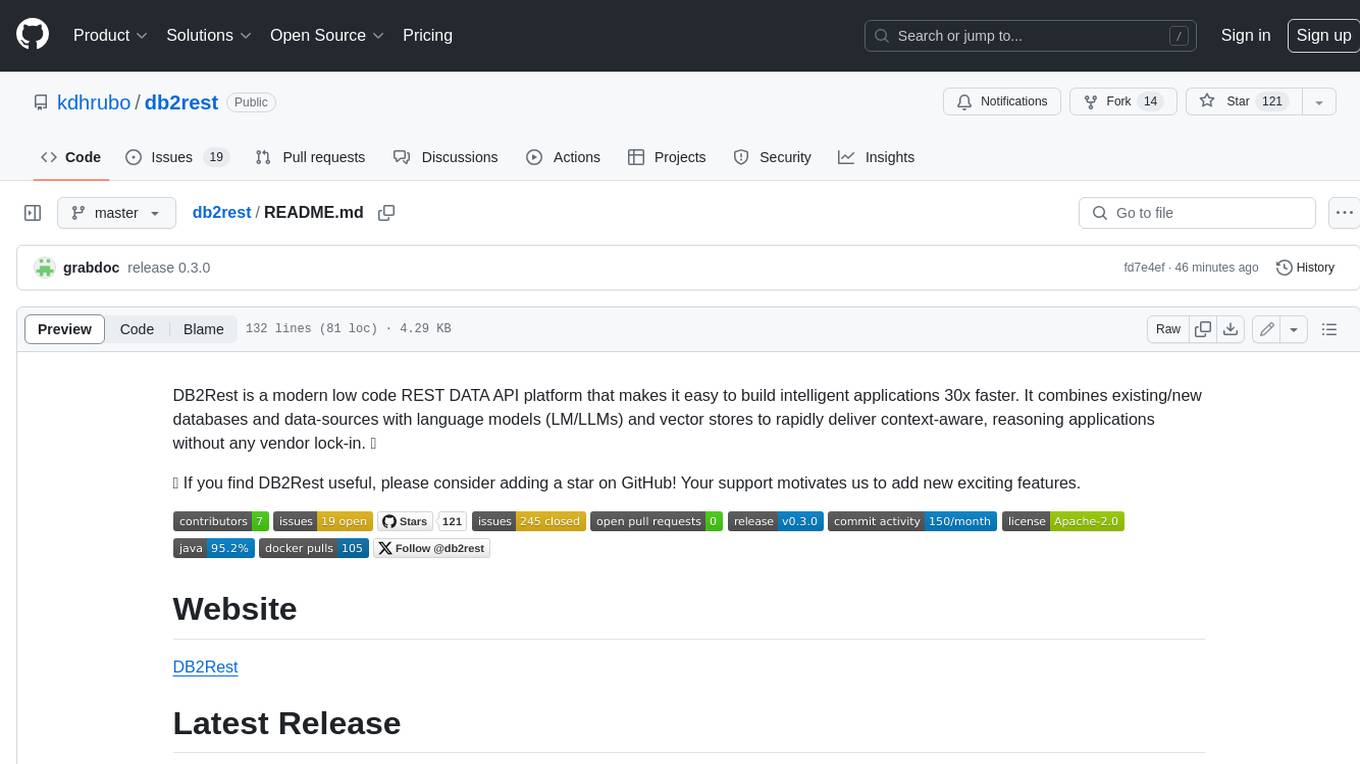
db2rest
DB2Rest is a modern low-code REST DATA API platform that simplifies the development of intelligent applications. It seamlessly integrates existing and new databases with language models (LMs/LLMs) and vector stores, enabling the rapid delivery of context-aware, reasoning applications without vendor lock-in.

tidb
TiDB is an open-source distributed SQL database that supports Hybrid Transactional and Analytical Processing (HTAP) workloads. It is MySQL compatible and features horizontal scalability, strong consistency, and high availability.

infinity
Infinity is an AI-native database designed for LLM applications, providing incredibly fast full-text and vector search capabilities. It supports a wide range of data types, including vectors, full-text, and structured data, and offers a fused search feature that combines multiple embeddings and full text. Infinity is easy to use, with an intuitive Python API and a single-binary architecture that simplifies deployment. It achieves high performance, with 0.1 milliseconds query latency on million-scale vector datasets and up to 15K QPS.
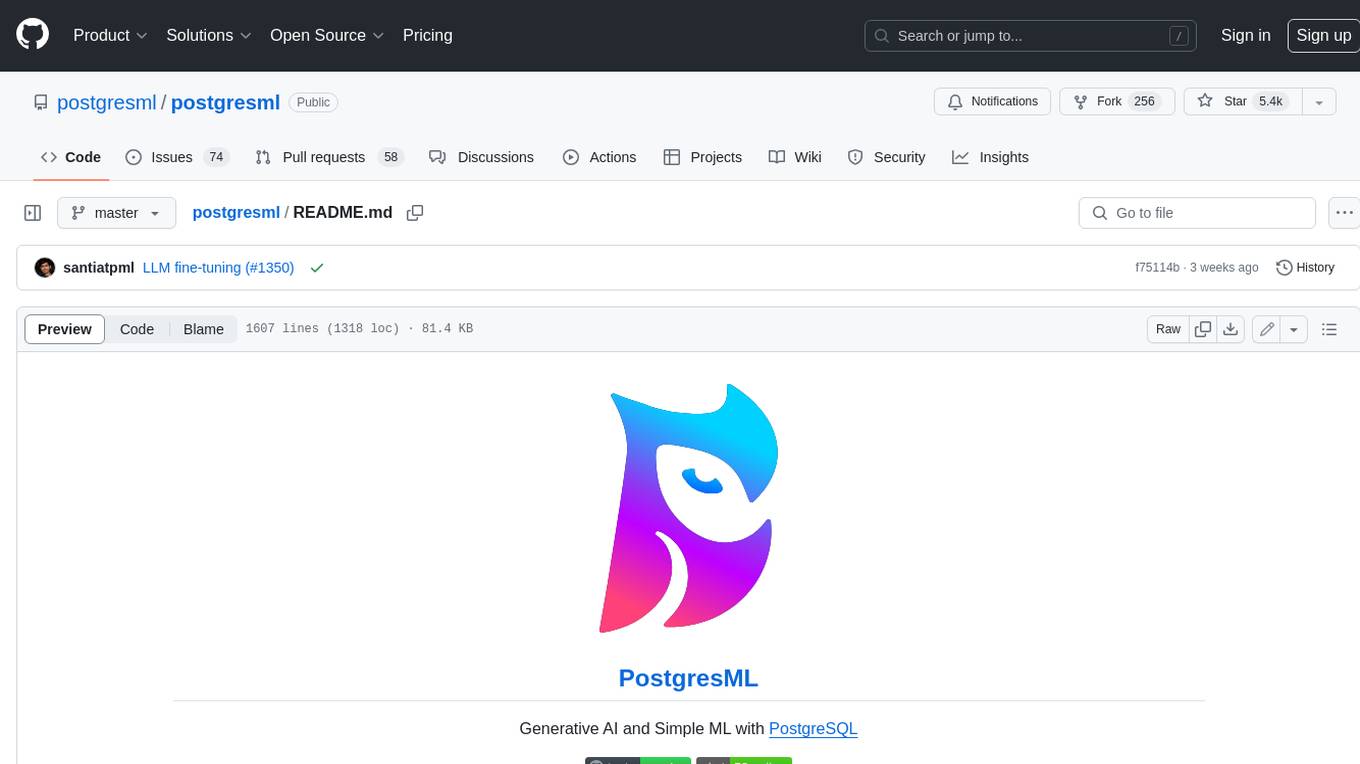
postgresml
PostgresML is a powerful Postgres extension that seamlessly combines data storage and machine learning inference within your database. It enables running machine learning and AI operations directly within PostgreSQL, leveraging GPU acceleration for faster computations, integrating state-of-the-art large language models, providing built-in functions for text processing, enabling efficient similarity search, offering diverse ML algorithms, ensuring high performance, scalability, and security, supporting a wide range of NLP tasks, and seamlessly integrating with existing PostgreSQL tools and client libraries.
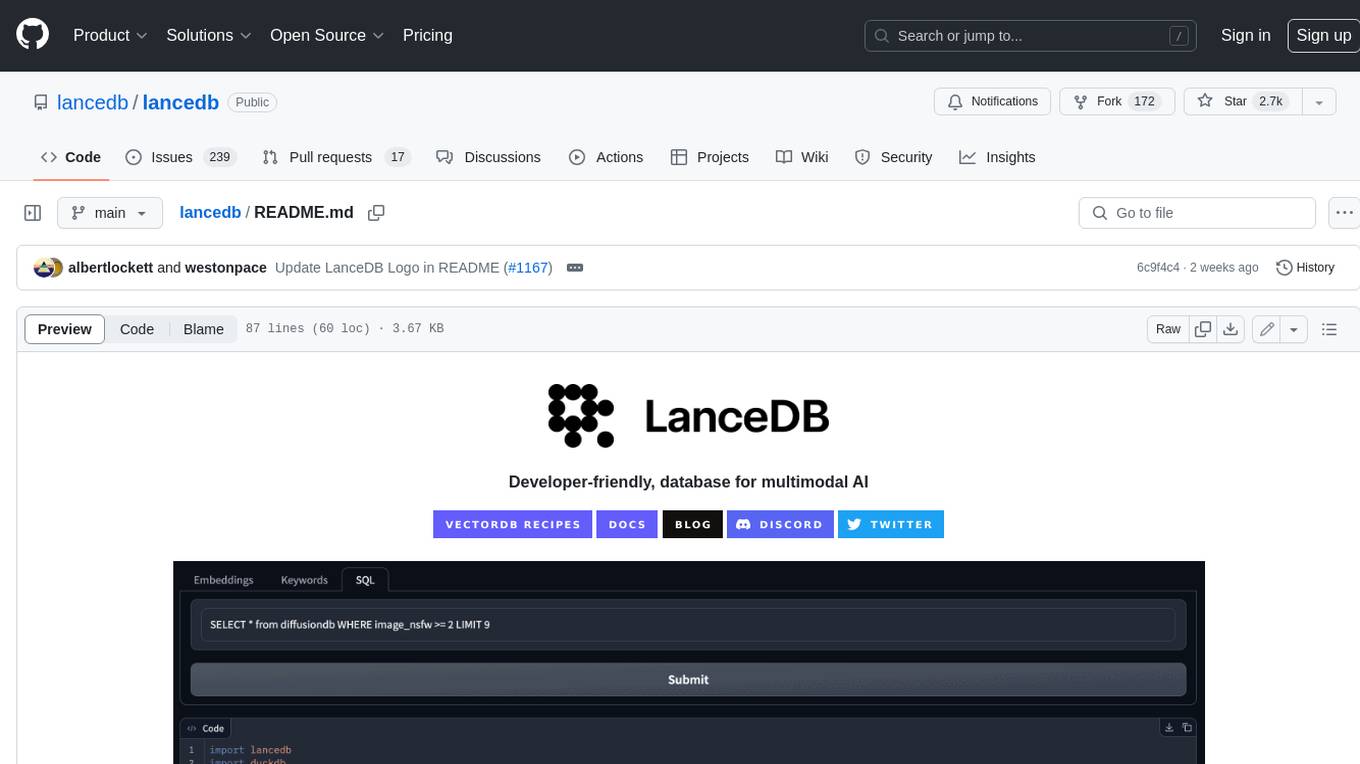
lancedb
LanceDB is an open-source database for vector-search built with persistent storage, which greatly simplifies retrieval, filtering, and management of embeddings. The key features of LanceDB include: Production-scale vector search with no servers to manage. Store, query, and filter vectors, metadata, and multi-modal data (text, images, videos, point clouds, and more). Support for vector similarity search, full-text search, and SQL. Native Python and Javascript/Typescript support. Zero-copy, automatic versioning, manage versions of your data without needing extra infrastructure. GPU support in building vector index(*). Ecosystem integrations with LangChain 🦜️🔗, LlamaIndex 🦙, Apache-Arrow, Pandas, Polars, DuckDB, and more on the way. LanceDB's core is written in Rust 🦀 and is built using Lance, an open-source columnar format designed for performant ML workloads.
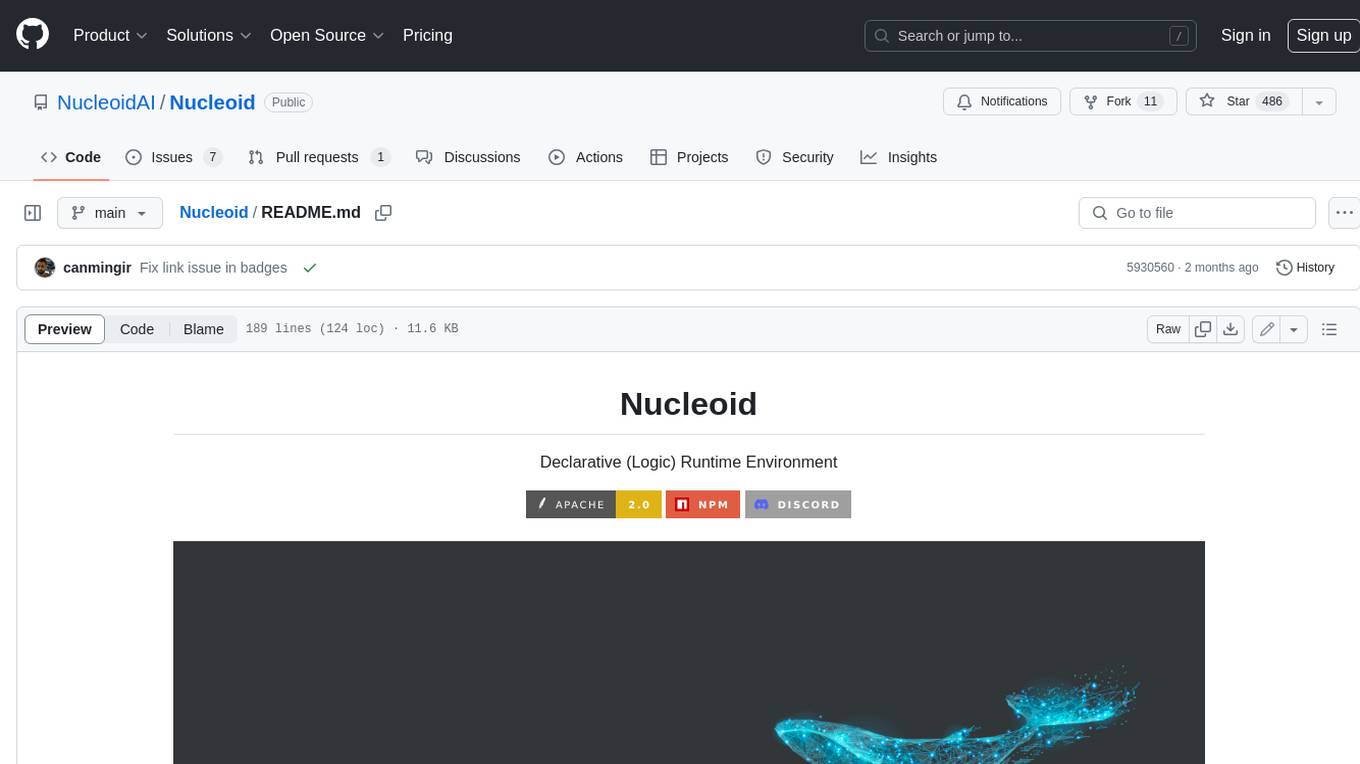
Nucleoid
Nucleoid is a declarative (logic) runtime environment that manages both data and logic under the same runtime. It uses a declarative programming paradigm, which allows developers to focus on the business logic of the application, while the runtime manages the technical details. This allows for faster development and reduces the amount of code that needs to be written. Additionally, the sharding feature can help to distribute the load across multiple instances, which can further improve the performance of the system.
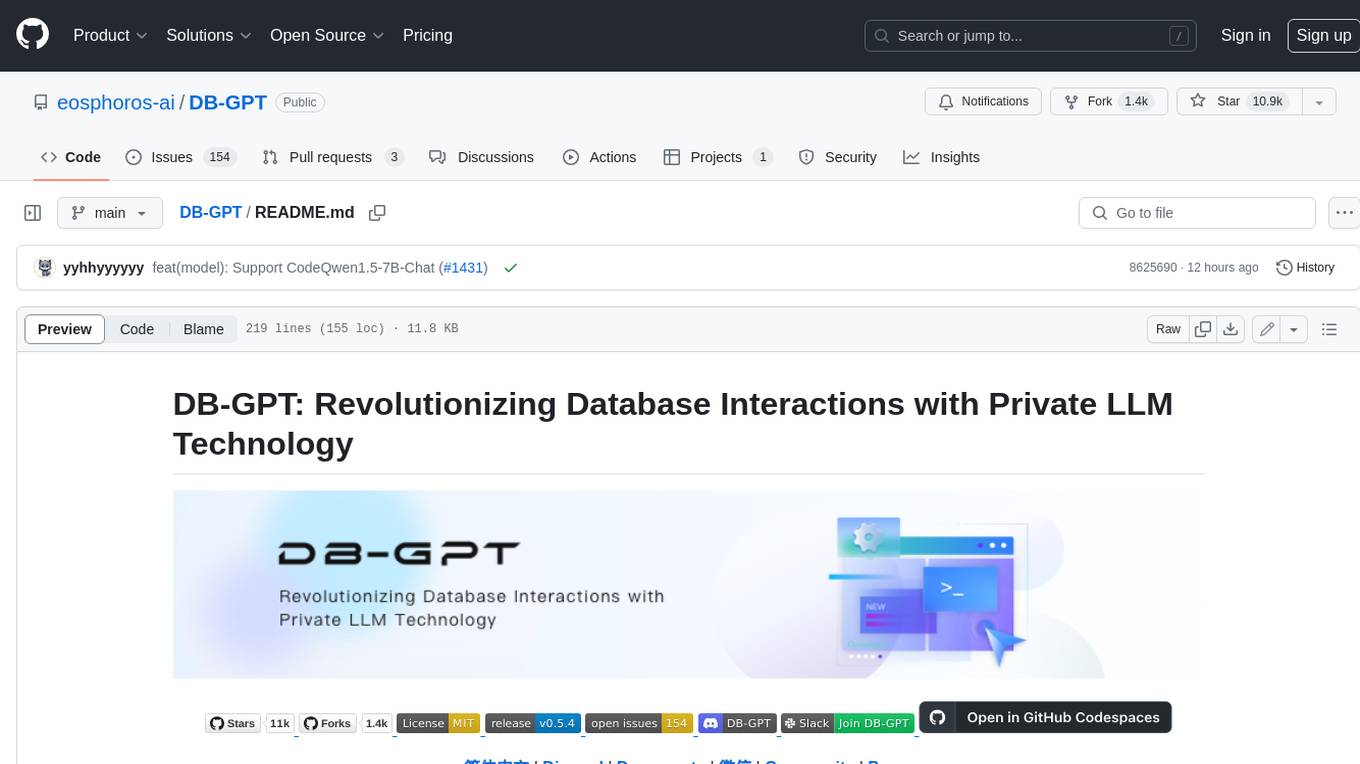
DB-GPT
DB-GPT is an open source AI native data app development framework with AWEL(Agentic Workflow Expression Language) and agents. It aims to build infrastructure in the field of large models, through the development of multiple technical capabilities such as multi-model management (SMMF), Text2SQL effect optimization, RAG framework and optimization, Multi-Agents framework collaboration, AWEL (agent workflow orchestration), etc. Which makes large model applications with data simpler and more convenient.